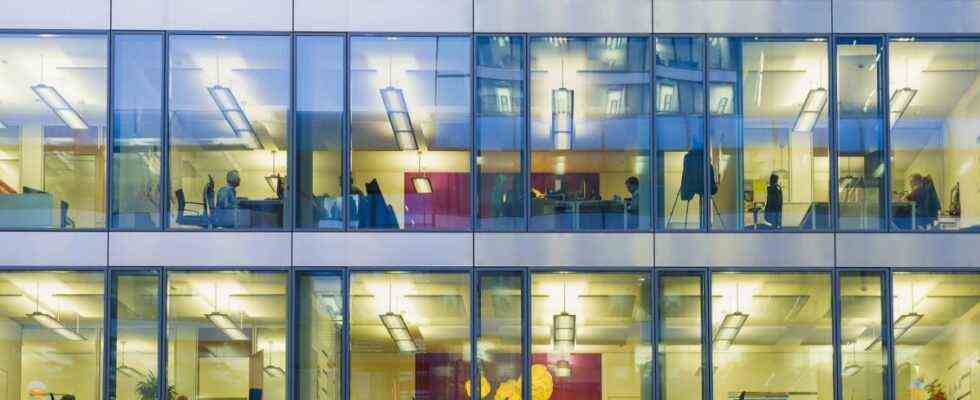When the virus began its journey around the world at the beginning of last year, the day-to-day work of Siemens manager Ralf Franke had changed overnight. Now the days started with a look at incidences and the current curves of the pandemic. And then there was always the question of what all this means for Siemens and its nearly 300,000 employees worldwide. Keep your distance, disinfect your hands and be careful? When do you have to send a large part of the administrative apparatus to the home office? And in which country or region? When it started in China, it was still quiet in Europe, and when it looked as if the pandemic in Asia would calm down a bit, the number of infected people in Europe rose.
Franke, 57, heads the environmental, health and occupational safety division at the Munich-based company. So he’s something like the top company doctor in the group, and he has a complicated job: for almost two years he has had to bring a global company through a global pandemic that is constantly changing. And different rules apply in every country. Because a corporation, an anti-corona measure for everyone and everything – it’s not that simple. Not even in Germany, where things are regulated very differently at the moment. There is the Corona traffic light in Bavaria with the option to also introduce the 3-G rule at the workplace when it is red. There are other countries in which 2G, 3G and 3G plus and tightening of the measures are being discussed because of the increasing number of cases. Because many things are not uniformly regulated, Siemens not only has Franke’s central Corona unit in Munich. “We are prepared for the fact that different corona rules apply in different federal states,” he says. Each of the around 90 companies in Germany has its own crisis team that implements regional requirements in the factories and offices. In Germany alone, around 240 employees are busy “observing and assessing the current corona situation”. Siemens is like all employers in this country: The company is not allowed to ask its employees about the vaccination or convalescence status. Much more than relying on distance and hygiene in factory halls and offices and on as much home office as possible is not possible.
The debate about whether 2-G or 3-G regulations should also be applied in companies – including the possibility of asking employees whether they have recovered or been vaccinated – has long since begun in the economy. Prototype: Italy. Anyone who wants to start their job here in the morning, whether in the private sector or in the public service, must be able to prove a vaccination, survived illness or a negative test. A role model for Germany too? The employees felt “the discrepancy between what they are allowed to do in their private life and what is allowed in the office according to the occupational health and safety ordinance,” says Siemens man Franke. “Going to a restaurant with several people vaccinated or recovering,” he says, but it is by no means so easy at work. Just “because we as an employer, unlike the restaurant owner, are not allowed to ask our employees about their vaccination status”.
There is a 2-G canteen at Krombacher
The first companies are already looking for their own models. For example, setting up zones in the canteens for the convalescent and vaccinated, a kind of 2-G restaurant, so to speak. The Krombacher brewery has already introduced this, according to its own information, while the Leverkusen chemical and pharmaceutical company Bayer is currently playing through such an option. Part of the canteen only for vaccinated and convalescent people?
These are “initial considerations for local pilot projects at our Bayer AG sites,” says a spokesman. Details would be discussed with the responsible employee representatives in the coming weeks and “jointly checked for their practical feasibility on site”. According to Bayer, anyone who visits such an “additional” 2-G canteen area is doing so voluntarily. This would correspond to “the wish of a growing number of employees who, one and a half years after the start of the pandemic, would like a safe return to the ‘normality’ of the time before Corona”. But, and that is what is important in Leverkusen: Nobody is obliged to disclose their vaccination status to the employer. “At every location there will continue to be the option of eating safely with a two-meter distance and using separating discs.”
At Siemens in Munich, the discussions in the other companies are closely followed. The matter is considered highly political, so there should not be separate canteen areas for vaccinated and tested people at Siemens at the moment. “That could also affect the internal climate,” believes Franke. The canteens are open to everyone, “with the usual hygiene and distance rules”.

